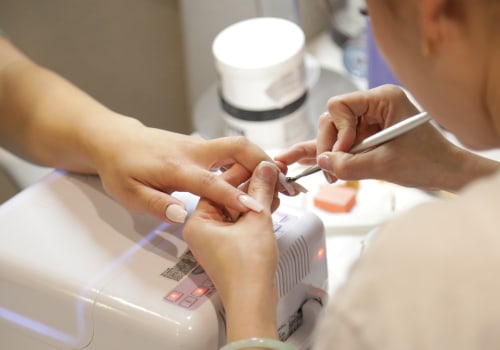Although there is no cure for rheumatoid arthritis, physical therapy and medications can help slow the progression of the disease. Most cases can be treated with a class of medications called antirheumatic drugs (DMARDs). Many of them are simple, such as using heat packs and ice. Others, such as acupuncture, need a trained professional.
There isn't much specific research on acupuncture for RA, although studies show that it reduces levels of inflammation-related chemicals in the body. It also helps with chronic pain, especially back pain. It can also help with osteoarthritis. Because acupuncture involves needles that need to be clean and well placed, ask the rheumatologist to recommend a professional who works with people who have RA.
This natural approach dates back thousands of years, and modern science proves it can help relieve pain. You'll want to talk to your doctor before trying it. You can also ask for recommendations. It's good to hire a massage therapist who has worked with people who have RA.
Let them know if you have any sore spots they should avoid. You can also ask them not to use scented products that can irritate your skin. This combination of low-impact exercise, breathing and meditation was developed in India about 5,000 years ago. It's good for body and mind.
It can relieve joint pain, improve your flexibility, and reduce stress and tension. Studies show it can reduce chemicals that cause inflammation and stress. Just talk to your doctor to make sure it's OK for you before diving in. Work with them to find an instructor who knows how to treat people with RA.
Essential oils can be a good addition to a massage. Be careful if you apply them to your skin or let someone else do it. Try a test patch to see how you react. Do not use it on broken or damaged skin.
What You Eat Matters With Rheumatoid Arthritis. I would eat more plant-based protein, including legumes, nuts, and seeds. However, an anti-inflammatory diet is not necessarily vegetarian. With rheumatoid arthritis, you want to keep moving and stay as agile as possible.
The application of heat and ice are also really good treatments for keeping ligaments, tendons and joints lubricated. When stretching and exercising, following good mechanics, in other words, it is important to maintain proper posture and the movement and position of the muscles to avoid stress on the joints. Omega-3 fish oil supplements specifically of the type with DHA and EPA, both found in seafood, are recommended. Rosian says the typical dose to treat inflammation is 1,000 milligrams twice a day.
However, fish oil can interfere with other prescription medications, so you should always talk to your doctor before you start taking it. Some studies have shown that turmeric has anti-inflammatory effects. Rosian says 750 milligrams twice a day, or 1000 milligrams once a day, is the ideal dose. According to the Centers for Disease Control and Prevention (CDC), targeted physical therapy can benefit people living with RA.
This may involve stretching, exercising, and alternating between hot and cold. Stretching the muscles around affected joints can provide some relief from RA symptoms. Consult a doctor or physical therapist before attempting any stretching in an area with RA. Some exercises can add harmful stress to the joints.
In addition to performing specific stretches, some dynamic, low-stress forms of exercise can benefit people living with RA. Working with a doctor or physical therapist can help ensure a person finds the right balance between rest and strengthening exercise. The doctor will often prescribe one of these medications within 3 months of being diagnosed with RA. In the case of mild illness, sulfasalazine may be an option instead of methotrexate.
It's essential to talk to a doctor before using any new remedies, including exercises and supplements. Anyone who has been diagnosed with RA should consider a combination of medications, natural remedies, and lifestyle changes that can reduce pain, support mobility, and promote well-being. There are a variety of natural remedies that can help a person reduce pain associated with RA or improve their ability to cope with symptoms. About 25% of people with rheumatoid arthritis develop firm bumps under the skin called rheumatoid nodules.
Learn more about these nodules here. Rheumatoid arthritis (RA) is just one of the myriad diseases and conditions that a naturopathic (ND) doctor can effectively treat. Holistic treatment of an ND can improve pain control, reduce fatigue, and manage medication side effects, ultimately improving the burden of disease and quality. Fish oil is the most commonly taken supplement for RA, and it certainly provides omega-3 fatty acids, which are not found at adequate levels in the Western diet.
These are anti-inflammatory in their effects. Fish oil can favorably affect the symptoms and progression of RA, especially with regard to joint tenderness, morning stiffness, and the reduced need for nonsteroidal anti-inflammatory drugs (NSAIDs). The problem is to differentiate the real impact of fish oil from that of a placebo. Very high levels of fish oil can reduce the tendency to clot in some patients, especially if they are taking other medications that cause blood thinning or if they need surgery.
Secondly, as with most herbal supplements, fish oil is also not regulated and therefore quality is completely dependent on manufacturing standards. Mercury pollution is an additional concern, although this applies more especially to young children and pregnant mothers. Fasting can help relieve some symptoms of RA, although the cause is not clear. It may be because some potentially allergenic foods are eliminated from the diet.
However, resuming these foods can cause symptoms to recur. Some people with low blood pressure, for example, or with fluctuating blood sugar levels may react badly to fasting. Therefore, medical supervision is mandatory before starting such a practice. Elimination diets are restrictive diets from which one type of food is eliminated after another, in order to detect sensitivity to any of these foods.
If the RA patient has such sensitivity, elimination can have a good effect on the symptoms of the disease. It remains to be demonstrated that RA itself is caused or even predisposed to it by food allergies or other hypersensitivity. Many European researchers have analyzed the effect of vegan or vegetarian diets on RA, with or without fasting. While not all people tolerate this equally well, which means that many drop out of studies, those who persist often report lower levels of inflammation, lower disease activity, and reduced symptoms.
While natural remedies for RA are a dime a dozen, it's important to note that not all of them are of the same quality and should not be considered equally effective. Natural supplements, such as turmeric and ginger, are supported by evidence from many other trials on their effectiveness in relieving inflammation, although not specifically for RA. Dietary interventions also show promise, as long as they are healthy and balanced. In addition to having more time, there is research on the cost-effectiveness of naturopathic medicine and the results are impressive.
If you have joint symptoms that could be caused by rheumatoid arthritis, see your healthcare provider right away. Rheumatoid arthritis (RA) is an inflammatory disease that affects the joints and also causes symptoms throughout the body. Even if your insurance doesn't cover naturopathic medicine, in the long term, there is evidence that you will often succeed in seeking holistic treatment, either in place of, or as an adjunct to conventional treatment. Common treatments include anti-inflammatory drugs and prednisone, as well as “more targeted treatments, such as immunosuppressive drugs and new families of oral biologics and biologics and injectable drugs,” he adds.
While I went to medical school for four years, completed a residency, and received training similar to that typical of a doctor, there are people on the same street who earned their naturopathic medicine degree through an online at-home course that took 100 hours to complete. Exercise and physical therapy are some of the most important therapies for rheumatoid arthritis to control joint stiffness and pain and maintain range of motion. Research published in the Indian Journal of Medical Research found that taking ashwagandha powder followed by treatment with Sidh Makardhwaj (another type of Indian medicine with herbal and mineral ingredients) relieves joint pain and swelling in people with rheumatoid arthritis. It's no secret that rheumatoid arthritis (RA) involves inflammation, so it's a good idea to add anti-inflammatory herbs and spices to your diet.
If you have rheumatoid arthritis, follow your health care provider's instructions on how to treat your condition. To provide resources to help answer health questions, MedlinePlus (a service of the National Library of Medicine) gathers reliable information from the National Institutes of Health, as well as other government agencies and health-related organizations. Focusing on gut health by modifying your diet, taking probiotics, using specific supplements such as turmeric and omega-3 fatty acids, incorporating some type of exercise into your regular routine, and managing stress are natural remedies for rheumatoid arthritis (RA) that can help reduce symptoms, including: pain and fatigue. So, even if the evidence is somewhat limited for certain natural treatments, if you're struggling to find relief from RA symptoms, holistic therapies are worth pursuing.
. .



